Updated: October 24, 2023 by CanCat Eat
Can cats eat cilantro? Coriander is also known as cilantro. Fresh leaves and dried seeds of this plant are traditionally used for cooking purposes. They are also known as Chinese parsley. All parts of this plant are edible for us. They are filled with many valuable nutrients. If you have a herb garden, you might also own one of these plants. You could even add them to your food while cooking. And you might ask yourself if they are also safe for your cats or not. Let us find out if they are safe for your cats or not.
Contents
Can Cats Eat Cilantro?
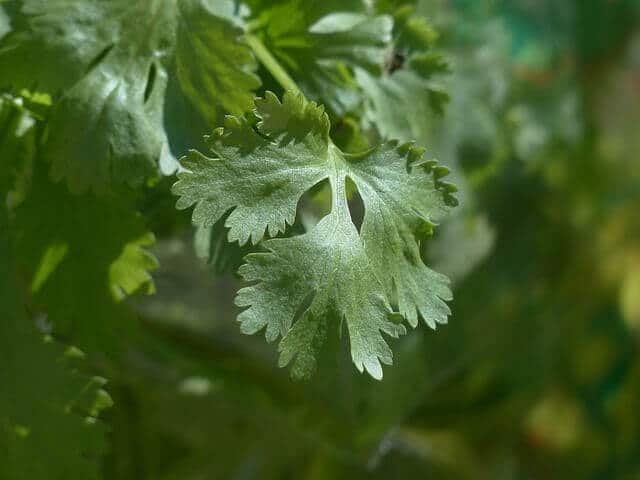
The answer is yes. Fresh and green cilantro, also known as coriander in certain regions, is a common and easy-to-grow wild and garden herb. You will find many sources telling you not to share cilantro with your cat. There is a debate on the internet about this topic. According to the ASPCA, cilantro is non-toxic, like marshmallows and pineapples for cats. If your cat overeats, there is a small chance of cardiac arrhythmia and gastrointestinal irritation.
The answer is yes. Your cat could eat cilantro. You could share some cilantro with your cat. If she is eating cilantro for the first time, you should take advice from a visionary doctor if you are sharing any kind of new food with your cat. If your cat ate some cilantro, she would be fine.
Health Benefit
Cilantro is normally grown in native regions like southern Europe, northern Africa, and southwestern Asia. It is a soft plant. It’s grown up to 50 cm (20 in) tall. The leaves of this plant are uneven in shape. The plant base of this species is broadly lobed. They have slender and feathery, higher-flowering stems. The flowers that grow on them are borne in small umbels, white or very pale pink, asymmetrical. Flowers with petals pointing away from the center of the umbel are longer than those pointing toward it. The fruit of this plant is a globular, dry schizocarp.
They are non-toxic to cats and other animals on ASPCA.
Additional Common Names: Coriander, Chinese Parsley, Dhania
Scientific Name: Coriandrum sativum
Family: Apiaceae
Toxicity: Non-Toxic to Dogs, Non-Toxic to Cats, Non-Toxic to Horses
Vitamin Value in Cilantro
- Vitamin A
- Vitamin B1
- Vitamin B2
- Vitamin B3
- Vitamin B5
- Vitamin B6
- Vitamin B9
- Vitamin C
- Vitamin E
- Vitamin K
Minerals Contain Cilantro
- Calcium
- Iron
- Magnesium
- Manganese
- Phosphorus
- Potassium
Nutritional Value
The seeds are different from the fresh stems and leave to coriander the nutritional profile. Plant leaves are particularly rich in vitamin A, vitamin C, and vitamin K. It also has a moderate content of dietary minerals. Plant seeds generally do not have a higher content of vitamins. But, The seeds do have a significant amount of dietary fiber, calcium, selenium, iron, magnesium, and manganese.
Some of the nutritional values are healthy for cats. But the final opinion about whether cilantro is healthy for cats or not is quite controversial. Some say you could go ahead. On the other hand, some will say to give them as much as they want to eat. While others advise against it, let us look at the benefits and dangers of eating cilantro for your cat.
What is Effect On The Digestive System
Cats may consume tiny quantities of cilantro safely since it is an herb. The risks of having problems after eating cilantro aren’t very high for cats. Cats are carnivorous animals. Their digestive system is designed to break proteins. So, they could get their daily protein needs met. There is a possibility that this herb may upset their stomach. Cilantro can create irritation in your cat’s stomach. There is a small amount of risk of gastrointestinal irritation and cardiac arrhythmia.
What Happens If a Cat Eats Cilantro?
According to the ASCPA, cilantro is safe for cats. But still, if your cat eats this grass, there is a chance she may get stomach upset and irritation in the stomach. There is a small chance that she could get gastrointestinal irritation and cardiac arrhythmia.
“Why Do Dogs And Cats Eat Grass?”
According to the ASPCA toxic plant list for cats, cilantro is safe for cats to eat. Thus, it means that the risks we discussed above are very rare. Perhaps, if you really want to add this to a cat’s diet, You could start with a very small quantity in a day. But do not give them every day; once in a while is good. You have made some Mexican or Chinese recipes with cilantro. You might ask, Should I share this food with my cats? Will it be safe for my cat?
You could share it once in a while. But you should keep your cat under observation to see if she shows any symptoms like diarrhea or vomiting from eating it. if she does not, and everything goes well. Then you could try to increase the amount. Precaution: the risk is still there. Even though there is still a 1% chance of getting sick, You should consult your vet for further advice before feeding cilantro, like any new food, to your loving feline.
You May Also read Can Cats Eat Raspberries
Other Harmful Foods Never Fed To Cats
Besides cilantro, there are some other harmful foods that are not good for cats. These foods are a big no-no when it comes to giving them to your cat. There is a list of foods like onions, garlic, and olives that could be toxic to cats. You should not give these foods to your cat, no matter what happens. Onions can help break down red blood cells in cats. This can cause anemia in cats. Garlic and olives can cause gastrointestinal upset. Your cat ends up tummy upset.
And too much dairy can also be harmful to your cat. Cats’ digestive systems cannot process over the limit of dairy products. And this may lead to diarrhea. If your cat has drunk even two teaspoons of any alcoholic drink, they can go into a coma. There is an herb like rhododendron that cats should never eat. We can say the same thing for Aloe Vera, Anemone, Cyclamen, Castor Bean, Ambrosia, and Mexicana.
Any more than that, and your cat could die. Other harmful foods are raisins and grapes. Researchers are working hard to figure out why grapes and raisins cause kidney failure in cats, but they are unable to do so yet. As we have explained before, the fact still remains that grapes and raisins should never be fed to cats.
Do you know Cat Subscription Boxes are a cool way to gift your cat every month? It is a sweet way to show your love towards to your cats as a cat lover.
Possible Alternatives To Cilantro
You will find that many sources say that cilantro is okay for cats. You can feed it to them. Many people said that their cats enjoy eating Mexican chicken recipes with cilantro on them. And some people will say that it is not good for your cats. Do not give them to cats. As we have discussed, there is still a 1% chance. But you should not ignore it. If you were giving them to your cat in the past and now, And you have not found any problems with feeding it. So, they are fine with it. You do not have to worry about it, then.
You May Also read: Can Cats Eat Mango
But, in case you are giving it for the first time, Then, you should keep your cat under observation. We highly recommend you take the last advice from your vet before you come to any conclusion about feeding any new food to your cats. You do not have to feel paranoid or like there is absolutely nothing that you could possibly give to your cat besides cat food.
Even though cats are carnivorous, Sometimes giving cats some vegetables can be beneficial. Some veggies have a good amount of protein; they will work as a supplement to your cat’s diet. You can add some veggies like winter squash, steamed asparagus, broccoli, baked carrots, or green beans to their diet. They are a good source of energy as well as providing protein as a supplement. But, as long as you are giving your cats good-quality cat food, you do not have to worry about giving or adding anything else to their diet.
Some Herbs are toxic to cats
- Aloe Vera
- Anemone
- Cyclamen
- Castor Bean
- Ambrosia Mexicana
Some Herbs Can Improve Your Cat’s Health
- Catnip
- Cat thyme
- Valerian
- Chamomile, Calendula, and Echinacea
- Licorice Root
- Cat’s Claw and Dandelion Root
- Goldenseal
Can Cats Eat parsley?
If you have parsley in your favorite food and you want to share it with your cats, That could be very dangerous for your cat. The ASPCA confirms that parsley is toxic to cats.
You May Also read: Can Cats Eat Raisins
Is Thyme Safe For Cats?
The ASPCA classifies thyme as safe for cats. People often grow this herb in their gardens. They benefit as an herbal remedy. Unlike other herbs, thyme is safe for both humans and cats. In fact, small amounts of thyme can actually help your feline friend with digestion. Most cats have no problem with thyme.
credit: https://steemit.com/cats/@virtualgrowth/safe-plant-cats
Possible Benefit of Thyme Herb For Cats Digestive System
Thyme has many health benefits for both people and pets. The active ingredient in thyme is oil; thymol has demonstrated anti-hermetic properties. It means that, under a veterinarian’s supervision, thyme oil can help treat certain worm parasites. It also allegedly improves a cat’s digestive health. It even helps with hairballs. For digestive problems, just let your cat nibble on the plant herself. For thyme oil; Otherwise, consult a vet.
Is Oregano Safe For Cats
No. They are not safe for cats. Your cat will get Oregano poisoning from it. So, never share Oregano with your cat.
Symptoms of Oregano Poisoning in Cats
After the consumption of this plant usually only results in a mild digestive upset. if any further illness even develops. Symptoms may develop over time if your feline has it daily. All signs to watch for include:
- Nausea
- Vomiting
- Diarrhea
- Shallow breathing
- Oral irritation
- Anorexia
- Liver-related issues
- Collapse
So, It’s best and safe to keep oregano plants away from your cat’s reach if you are growing them in your kitchen.
Treatment of Oregano Poisoning in Cats
If your cat ate some amount of oregano oil, it has the potential to cause permanent liver damage. This will require ongoing treatment. Skin and oral damage might heal as soon as they get treated. So do not let your cat have oregano oil.
You should call a supportive number. Depending on the symptoms manifested in your cat, hospitalization may be required. If your cat experiences any burns or irritation in her mouth, the mouth needs to flush with water properly. Any other part that might connect with the oil needs to be cleaned thoroughly to cool the inflammation.
You May Also read: Can Cats Eat Bananas
Can Cats Eat mint?
Many sources will tell you mints are safe for cats. They are okay for cats to eat. Some spices, like mint, are safe. The most trusted database of dangerous plants for pets is the ASPCA. According to them, mist is toxic to cats and dogs. The important thing to note is that most mists are high in essential oils. So, they can cause a negative result if consumed in high quantities. Both mint and catnip are safe for cats. Garden mint can cause gastrointestinal upset to cats if consumed in higher quantities.
Some Symptoms of Mint Poisoning in Cats
With the most form of mint, it is a rare case for any illness in any follow consumption. If a reaction does occur, it will likely be limited to gastrointestinal distress. A few types of mint are capable of causing real damage to your feline body. Some of the signs are the following:
- Nausea
- Vomiting
- Diarrhea
- Weakness
Treatment of Mint Poisoning in Cats
If your cat ate mint, pumpkin, shrimp, and cantaloupe, she is showing several symptoms. You should take her to the veterinarian. If you have seen your cat eating mint before getting sick. Also, share that with the vet. This might make the diagnosis easier.
Is Mint Safe For cats?
In most cases, there is no need for any treatment for mint poisoning. To cure it, the vet will induce vomiting using hydrogen peroxide. A stomach pump may also be used in some extreme cases. Both of these procedures will remove all the plant material before it is fully digested.
You May Also read: Can Cats Eat Raw Egg
Can Cats Eat basil?
Basil is safe for cats and dogs. As mentioned by the ASPCA, they are non-toxic for cats and dogs. It is safe for cats if they consume it in small doses.
Is Henna Poisonous To Cats
Henna is a no-no for cats and dogs. You should not keep them as pets. They are only good for humans to use.
Here is A List Of Safe Herbs For Cats
- Catnip
- Cat Thyme
- Valerian
- Licorice Root
- Cat’s Claw
- Dandelion Root
- Goldenseal
- Chamomile
- Calendula
- Echinacea
Are Impatiens Poisonous To Cats
The good news for cat owners is that impatiens are not toxic to cats. According to the American Society for the Prevention of Cruelty to Animals (ASPCA) impatiens is nontoxic to cats. So, If you find your cat chewing on this plant you do not have to worry about it.
Is cilantro bad for cats?
If you have a question in your mind, “is cilantro toxic to cats?” The short answer is no; cilantro is not poisonous to cats. However, it is not recommended for cats to eat cilantro in large quantities, as it can cause digestive issues such as vomiting and diarrhea. Cilantro contains compounds that are not easily digestible by cats, leading to digestive upset. Additionally, cilantro contains essential oils that can irritate a cat’s digestive system.
Can cats have cilantro?
Yes, cats can have cilantro in small amounts. Cilantro is not toxic to cats, but like many herbs, it should be given in moderation. Some cats may enjoy the taste of cilantro, and it may provide some nutritional benefits such as vitamins and antioxidants.
However, it’s important to note that not all cats like the taste of cilantro, and some may have an aversion to it. If you’re introducing cilantro to your cat’s diet, start with a small amount and monitor for any signs of digestive upset or allergic reactions. As with any new food, it’s best to introduce it gradually and in small amounts to prevent any potential digestive issues.
Conclusion
As we have discussed, Cilantro is not toxic for cats, according to the ASPCA. But you may find a lot of controversy on this topic: “can cats eat cilantro“. The answer is yes. If your cat has been eating cilantro for a while and is loving it, Then, there is nothing to worry about. You should only give them a small amount every now and then. But you should not give cilantro to your cat for the first time without any vet advice. We strongly recommend taking the advice of a vet before adding any new food to your cat’s diet. I hope this article helps you get your answer to “can cats eat cilantro“.










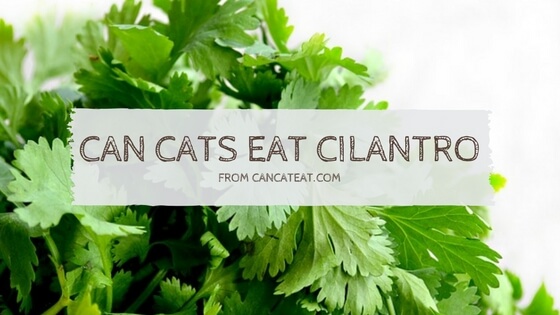
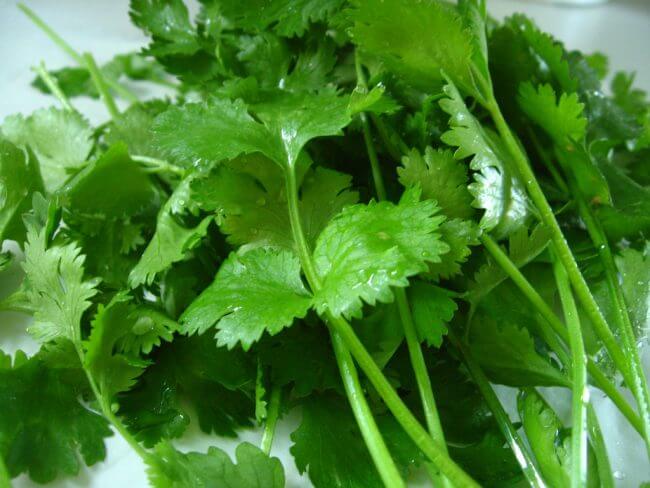

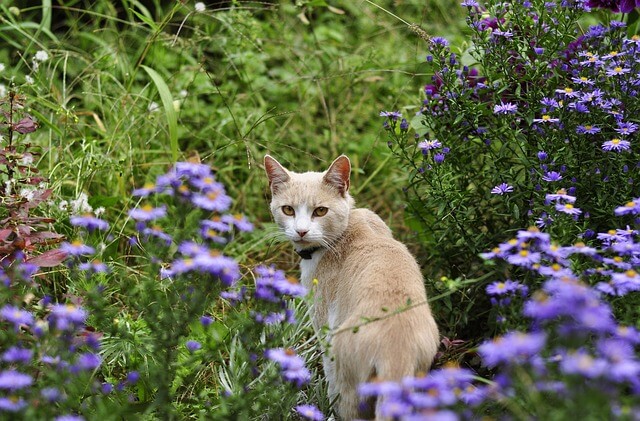
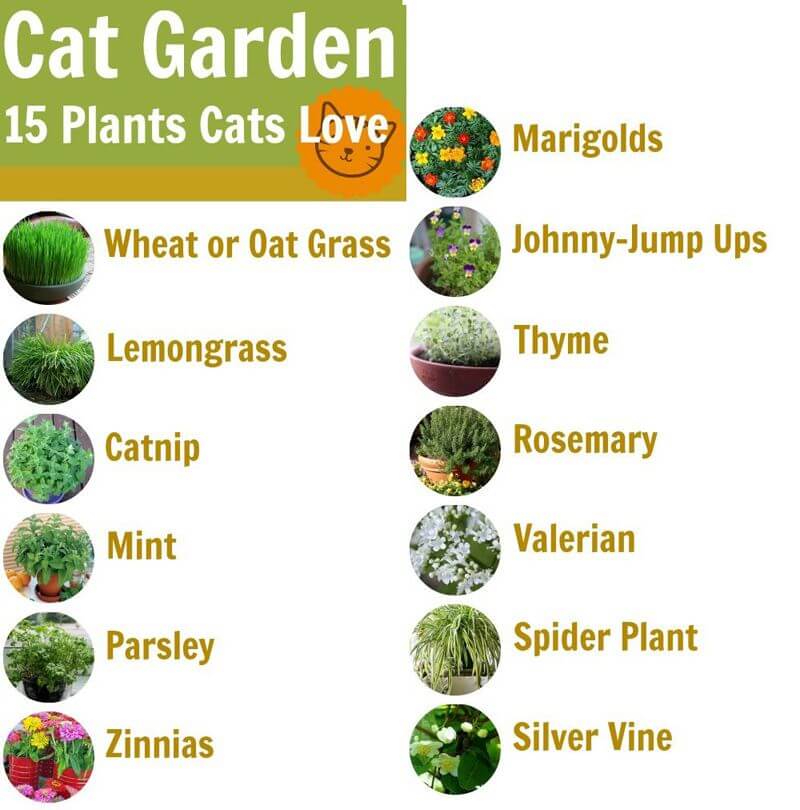
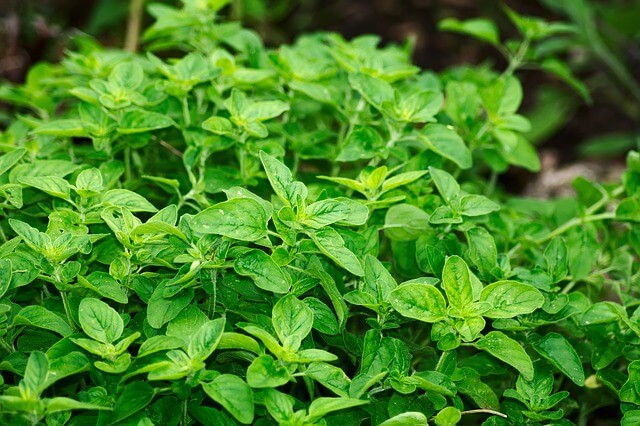
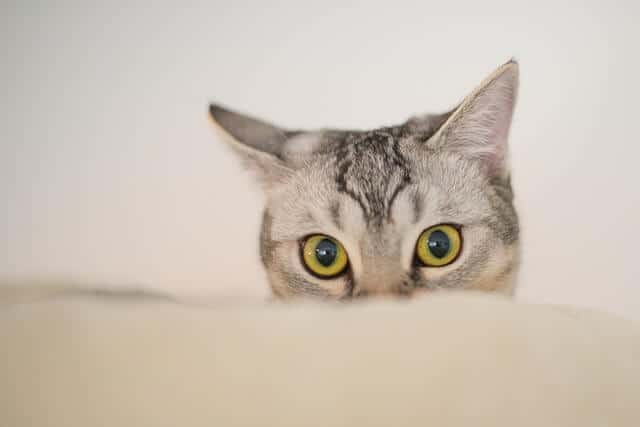
Thank you for your great information.
We have adopted 2kittens, and as a plants lover, it was important to know which green guys could stay in with them.
I have a question. How about Culantro? Tastes so similar to Cilantro, but their looks totally different than Cilantro. Bonus for this herb is so much easier to grow.
I would love to keep them inside our kitchen if they are not toxic to the cats. I would much appreciate if you could give me answer.
Thank you.